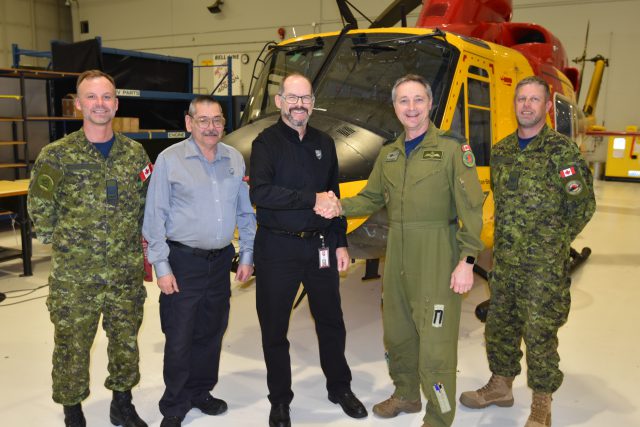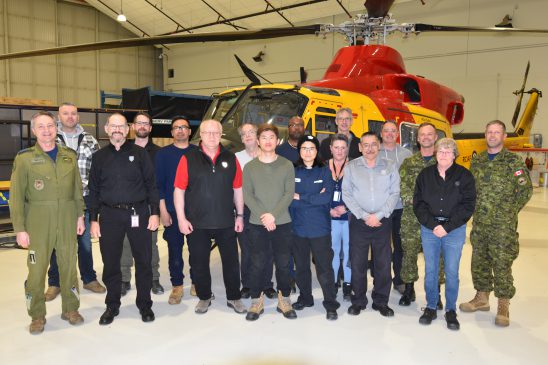
On 3 April, 400 Squadron expanded its operational capacity and will be significantly increasing its support to the overall CH-146 Griffon fleet serviceability.
This is being accomplished by adding a second contracted line of aircraft maintenance, thanks to their very successful industry partnership with Bell Helicopter Textron (and sub-contractor Heli-One).
Rerolled in 2013/14 as the Second Line Maintenance Squadron for the RCAF’s fleet of CH-146 Griffon Helicopters, 400 Squadron is tasked with conducting periodic maintenance for the various Griffon units across Canada, primarily for other 1 Wing Squadrons. With the recent reconstitution efforts begun by the CAF, considered personnel moves were required to best support the needs of the RCAF and Canadians. While this has had an impact on units such as 400 Squadron, which has seen a notable decrease in numbers (particularly among Aircraft Technicians), the CAF and RCAF continue to make the necessary difficult decisions to help improve the readiness and long-term health of Canada’s military as we seek to improve our overall capacity.”

400 Squadron has been partnered with Bell (and Heli-One) since December 2016. They have been providing exceptional support to 400 Squadron’s maintenance capabilities, consistently performing quality inspections on four CH-146 Griffons per year, with their original one line. Adding this second contracted line has brought the total lines of maintenance up to five (three military and two contracted) and will allow 400 Squadron and 1 Wing to maintain its operational mandates. This is “a vital component in supporting 1 Wing’s effectiveness within Canada” says LCol Holbrook, Commanding Officer of 400 Squadron, with support to domestic disaster relief, and on international operations, such as the upcoming deployment of Griffon helicopters to Operation Reassurance in Europe in 2024.
LCol Holbrook also commented, “The stand-up of an additional contracted line of maintenance is incredibly beneficial to the Griffon community and indeed the whole of the RCAF as it helps ensure that we’ll have enough flying hours available so that our crews can conduct required proficiency training and be ready to respond to whatever the CAF and the Government of Canada needs us to do, for the foreseeable future.”





